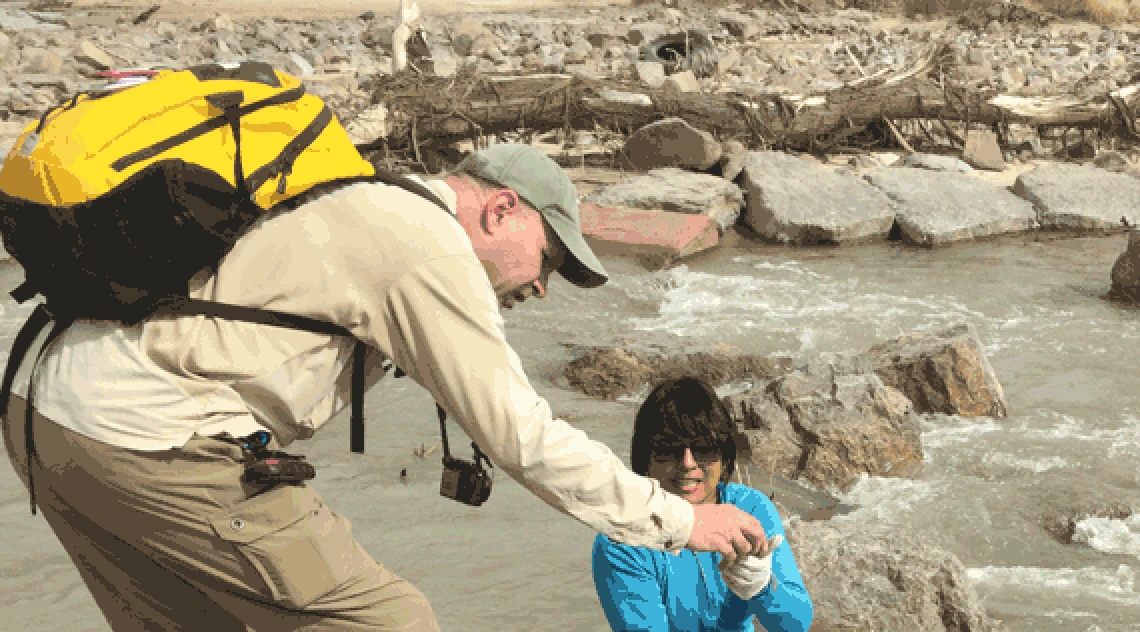Community Engagement Core Projects on the Navajo Nation: Addressing the Gold King Mine Spill

University of Arizona Superfund Research Program (UA SRP) Community Engagement Core (CEC) researchers, Dr. Karletta Chief and Denise Moreno Ramírez, were joined by Training Core trainee, Kimberly Danny, for work on the Navajo Nation from March 12-16, 2016.
The UA SRP team collaborated with local community organizers (To’ Bei Nihi Dziil) to host the “Gold King Mine Spill Teach-In” in Shiprock, Arizona. The one day Teach-In was moderated by local community advocates and provided an opportunity for community members to hear about two Gold King Mine spill projects being conducted by the UA and New Mexico State University. The event also included presentations on the cultural, geological, and historical history of Shiprock, listening sessions of the Navajo Nation, and health impacts of metals. Over 50 community members attended the event and provided valuable input regarding their perceptions of community needs, concerns, and organization efforts at the grassroots level. Dr. Chief observed: “The opportunity to partner with To’ Bee NihiDziil to host this teach-in on the Gold King Mine and to engage the community on the discussion of the spill impacts and future outlook was a step towards disseminating knowledge about the spill and increasing resiliency to future spills”.The team regrouped for the next two days to begin environmental sampling for the NIEHS grant-funded project entitled, “Tó’łítso, the Water is Yellow: Investigating Short-term Exposure and Risk Perception of Navajo Communities to the Gold King Mine Spill”. Project PIs Dr. Chief and UA SRP collaborator, Dr. Paloma Beamer, partnered with undergraduate students from UA SRP investigator Dr. Walter Klimecki’s NIEHS EH TRUE grant, and from Dr. Jani Ingram’s laboratory at Northern Arizona University. A two-day sampling event took place, with field groups collecting soil and water samples from different locations across the Navajo Reservation. UA undergraduate Benjamin Rivera talked about how the experience helped him to understand the importance of research translation in collaborating with impacted communities: “These populations are very wary of who to trust, and no matter how terrific the results in the lab may be, they mean nothing if the community can't understand or apply those results to their situation.”
Moreno Ramírez and Danny wrapped up the week by traveling south to Diné College’s Tsaile Campus, where they gave lectures and led hands-on-activities from the UA SRP “Tribal Mining Modules” series. Danny presented the UA’s copper mining and processing lecture and copper electrolysis activity to three classes, and together with Moreno Ramirez fielded questions stemming from both the presented materials and the process of becoming a UA student. Danny said of the experience: “I look forward to piloting more modules at Dine College. The students and instructors were highly engaged and provided us valuable feedback on how to improve the delivery of the tribal mining modules”.

